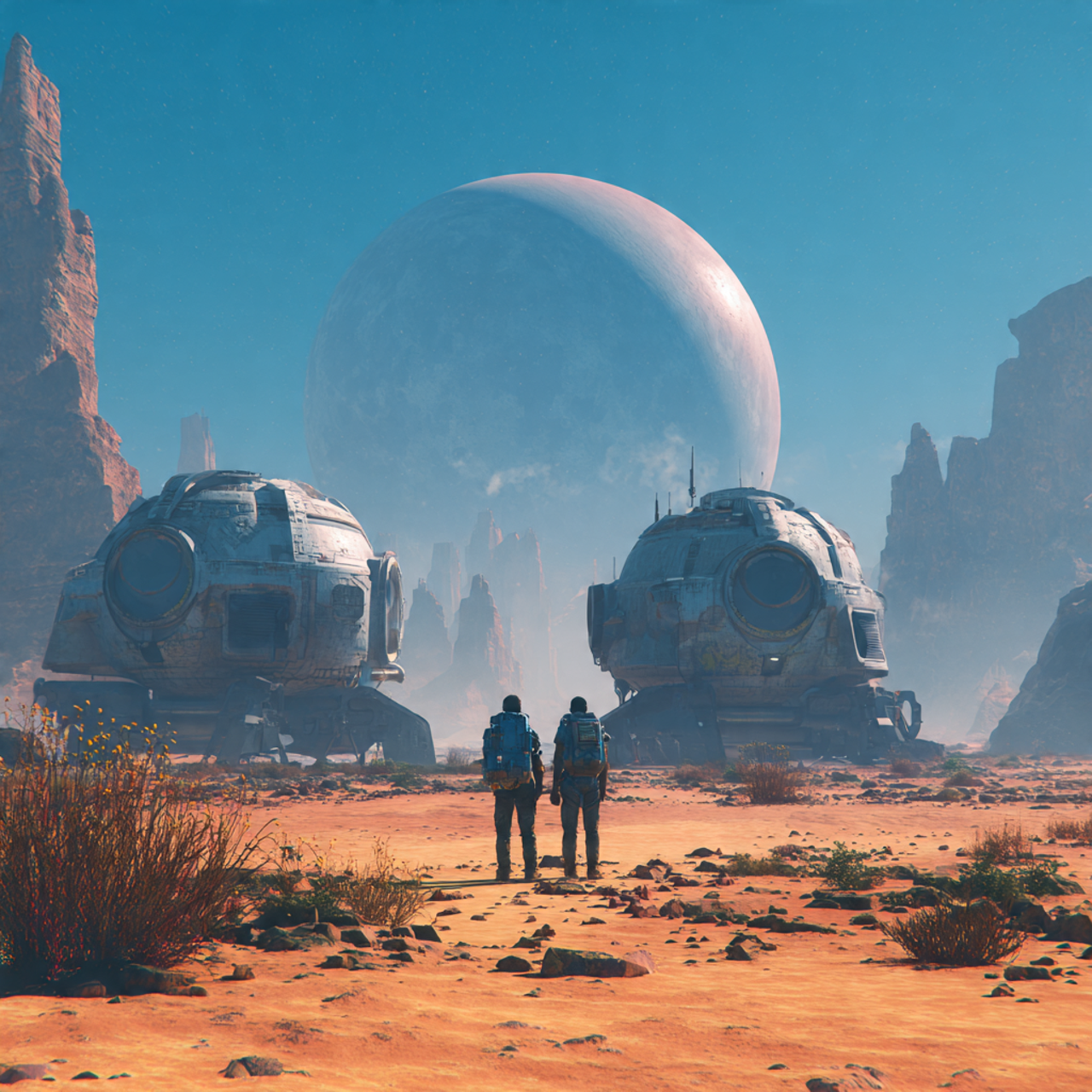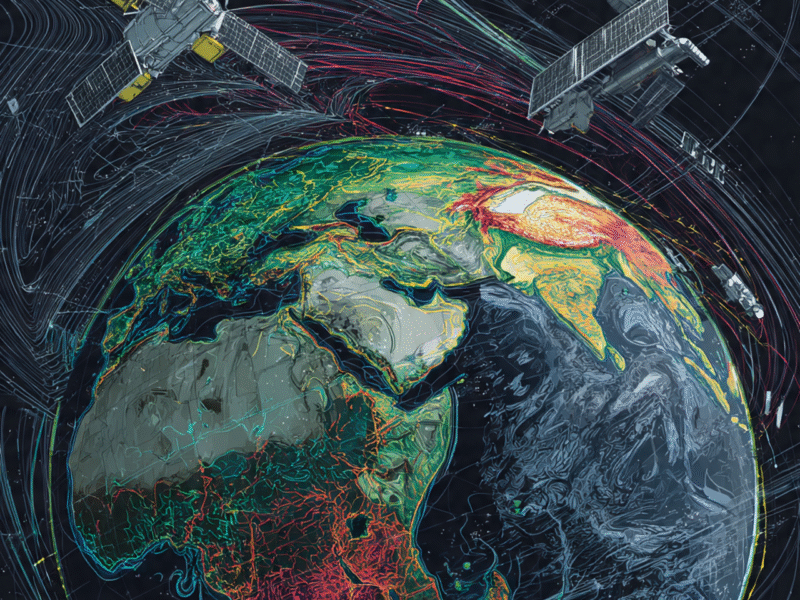Interplanetary Settlement: A New Beginning in Humanity’s Cosmic Journey
Interplanetary Settlement: A New Beginning in Humanity’s Cosmic Journey
The concept of interplanetary settlement is becoming a scientific reality today rather than science fiction. It is not just a dream of establishing colonies on the Moon or Mars, but it indicates a fundamental change in our thinking about the existence and future of humanity. When we think of settling on other planets outside of Earth, we are actually committing to expanding the survival of our species beyond the confines of one planet and spreading it throughout the universe. This concept is giving new dimensions to our psychology, our civilization, and our scientific capabilities. SpaceX founder Elon Musk says humanity must become a “multi-planetary species” to avoid a global catastrophe. The idea is no longer just a vision, but is being worked on in practice. NASA’s Artemis program is preparing to return humans to the moon, while SpaceX’s Starship is being designed to colonize Mars. All these efforts show that humanity no longer wants to limit its future to Earth. This concept of interplanetary settlement is expanding our thinking, giving flight to our dreams, and convincing us that our capabilities are limitless. When we think of settling on other planets, we are actually building a safe future for our future generations. This journey is not just a journey of science, but a journey of humanity’s determination and will, which has the potential to take us to the stars.
◉ Mars Settlement: The Dream of Greening the Red Planet
Mars settlement has become the most obvious goal of humanity’s interplanetary adventure. The dream of making the Red Planet habitable is no longer just a dream, but scientists and engineers around the world are working on it. The challenges faced in establishing the first human colony on Mars are numerous, but with each challenge our scientific capabilities are also increasing. The Martian environment is radically different from Earth’s – the atmosphere there consists of 96% carbon dioxide, the surface temperature can drop to minus 80 degrees Celsius, and the radiation level is much higher than on Earth. Despite all these difficulties, scientists are finding ways to make Mars habitable for humans. The concept of terraforming is the most interesting in this regard, under which the plan is to change the Martian atmosphere to make it more Earth-like. This includes converting the carbon dioxide in the Martian atmosphere into oxygen, ensuring a water supply by melting the polar ice caps, and providing radiation protection by establishing an artificial magnetic field. All these steps will gradually make Mars habitable for humans. SpaceX’s Mars mission design includes reusable rockets, the use of Martian resources for fuel production, and automated construction systems. This plan is not only technically feasible, but it is also a ray of new hope for humanity. Colonizing Mars is teaching us how to turn our dreams into reality even with limited resources, and how we can achieve our goals despite difficulties.
◉ The Lunar Economy: Using Earth’s Closest Neighbor
The colonization of the moon is proving to be the first step in interplanetary adventures. Being the closest to Earth, the moon is an ideal place for space colonization. NASA’s Artemis program plans to return humans to the moon by 2024, but this time the goal is not just to set foot on the moon, but to establish a permanent human presence there. Colonies established on the moon will not only serve as a jumping off point for Mars and other planets, but they will also lay the foundation for the space economy. The moon’s resources, especially helium-3 in its surface, could meet future energy needs. Helium-3 is an isotope that can be used in nuclear fusion and is found in very small quantities on Earth. Oxygen and metals can be extracted from the lunar crust (soil) and used in space construction. Research laboratories established on the moon will open new avenues for science, where experiments can be carried out in a low-gravity environment that are not possible on Earth. The concept of colonizing the moon is also changing our economic thinking. It is teaching us how to use space resources to establish a new economy, and how to open new trade routes between different planets. The lunar economy will not only promote space exploration, but it will also create new industries and jobs on Earth.
◉ The Evolution of the Space Economy: A Trade System Beyond Earth
The concept of interplanetary settlement has accelerated the evolution of the space economy. Now space exploration is no longer limited to government agencies, but private companies are also playing an important role in it. Companies like SpaceX, Blue Origin, Virgin Galactic are opening the doors to interplanetary trade by reducing the cost of space travel. This new model of the space economy is not only revolutionizing technology, but it is also creating new investment and business opportunities. Satellite mining, space manufacturing, and space hotels in orbit are going to become realities in the near future. All these activities are giving rise to a space economy that will be both separate from and connected to the Earth economy. New routes for interplanetary trade will open, where goods and services will be exchanged between different planets. Space tourism will become a new industrial sector, where ordinary citizens will also be able to experience space travel. Space manufacturing has made it possible to produce products that are impossible to make on Earth, such as pure metals and new types of medicines. These economic changes are not only changing our business thinking, but they are also teaching us how to thrive even with limited resources, and how to establish economic cooperation between different planets.
◉ Scientific Revolution: New Fields of Interplanetary Research
The concept of interplanetary settlement has opened new doors for scientific research. When we think about settling on other planets, we have to do new kinds of scientific research. New discoveries are coming out in the fields of biology, chemistry, physics, and engineering. The search for signs of life on Mars, the study of ice deposits in the polar regions of the moon, and the analysis of the chemical compositions of asteroids – all these investigations are expanding our scientific thinking. Research conducted in the interplanetary environment is not only telling us about other planets, but it is also giving us new information about Earth. For example, studying the environmental changes of Mars is helping us understand the climate changes on Earth. Analyzing the geological structure of the Moon is telling us about the formation of the solar system. This scientific revolution is not only quenching our thirst for knowledge, but it is also providing us with solutions to practical problems. Interplanetary exploration has taught us how to survive in different environments, how to utilize limited resources, and how to thrive in extreme conditions. These lessons are not only useful for space exploration, but they are also helping to improve our lives on Earth.
◉ Environmental Sustainability: Interplanetary Lessons for Earth
Concepts of interplanetary settlement are teaching us valuable lessons about environmental sustainability on Earth. When we think of settling on other planets, we have to develop closed ecosystems that are self-sufficient in terms of water, air, and food. These closed systems are actually miniature versions of Earth’s ecosystems, and when designing them, we need to understand Earth’s natural systems in depth. Closed ecosystems designed for interplanetary settlement are teaching us how to reuse resources, minimize waste, and use energy efficiently. These lessons are also very important on Earth, where we are facing problems such as environmental pollution and resource scarcity. The concepts of interplanetary settlement have also taught us how to establish self-sufficient settlements using local resources. On Mars or the Moon, we cannot take resources from Earth, so we have to use the resources there. The same principle applies to Earth, where we must develop sustainably using local resources. This concept of interplanetary settlement is teaching us how to treat our Earth like a spaceship, where everything is limited and we have to protect it.
◉ The Evolution of Human Psychology: The Journey to Becoming a Cosmic Citizen
The concept of interplanetary settlement is deeply affecting human psychology and culture. When we think of settling on other planets, our mental structure is also changing. We are no longer just residents of Earth, but we are moving towards becoming cosmic citizens. The effects of this change are also visible in our daily lives, our education, and our culture. The new generation of children now dream of becoming astronauts, and they are giving more importance to science and technology education. The concept of interplanetary settlement is also teaching us how people of different cultures and nationalities can work together. The International Space Station is a perfect example of this, where astronauts from different countries are working together. This cooperation teaches us that we will also need international cooperation in interplanetary settlement. The study of the effects of interplanetary settlement on human psychology is becoming a new scientific field. Scientists are trying to figure out how long-distance space travel will affect the human mind, and how the psychology of humans living on different planets will change. This research is not only important for space exploration, but it is also proving to be helpful in understanding human psychology on Earth.
◉ The Future of Humanity: Establishing a Multiplanetary Species
Concepts of interplanetary colonization are reshaping the future of humanity. These concepts are telling us that the future of humanity is not limited to Earth, but extends to the entire solar system and beyond. Becoming a multiplanetary species is the next step in the evolution of humanity, which will provide us with unlimited possibilities and opportunities. This journey of interplanetary colonization will not only test our scientific abilities, but it will also reshape our culture, our values, and our human identity. When we settle on other planets, our children will be born there, and their thinking and culture will be different from ours. This evolutionary change will be a new beginning for humanity, where our species will expand beyond its current boundaries to the cosmic level. This concept of interplanetary colonization gives us hope that humanity will never end, no matter how great the destruction on Earth. This hope gives us the strength to deal with today’s problems, and leads us to a brighter future. Interplanetary colonization is not just a matter of science, but rather a testament to humanity’s determination, courage, and creativity, which has the potential to take us to the stars.


